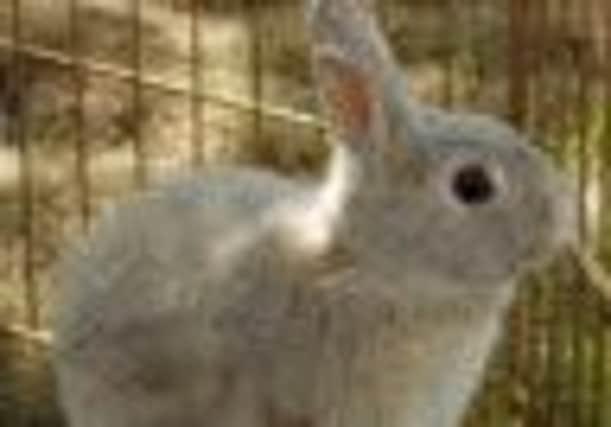One in five vets worried about the ‘Bugsy Alone’ in family homes


The recent questionnaire, carried out by the British Veterinary Association, asked vets which pets people should be discouraged from keeping.
One in five vets put rabbits at the very top of the list for a variety of reasons, including the fact that many spend up to 23 hours a day in alone in their hutches.
Advertisement
Hide AdAdvertisement
Hide AdRabbits are very social animals and need contact with their own kind vets said, and being kept on their own causes them to experience boredom, frustration and fear.
While many people think rabbits are easy to look after and ideal pets for children, the message from vets is that they have complex needs and the traditional idea of the rabbit in the hutch can mean a life of misery for these pets.
“Rabbits should not be solitary animals left in the hutch 23 hours a day,” one vet said. “Rabbits often get forgotten and are kept as single pets.”
Another added: “Rabbits are often bought for children who grow bored of them – rabbits can live for a very long time in a small hutch and often get quite neglected.”
Advertisement
Hide AdAdvertisement
Hide AdThe most recent PDSA Animal Wellbeing (PAW) report highlights how widespread and serious this ‘Bugsy Alone’ syndrome is, reporting that in 2013, 65% of pet rabbits were living alone.
Vets also commented on poor diets and poor husbandry as problems they commonly see when treating pet rabbits. One vet said: “Many rabbits have poor husbandry, nutrition and clinical care. The traditional hutch does not meet their physical, social or environmental needs.”
BVA Senior Vice President and small animal vet Robin Hargreaves said: “Pet owners, particularly parents trying to buy a suitable pet for their child, have the very best intentions.
“But I would urge them to stop, think and ask before purchasing any animal, and give careful consideration to their ability to fully provide for its welfare needs as well as the child’s relationship with the animal.”
“Rabbits need the companionship of other rabbits and should never be kept alone or with guinea-pigs. The best combination is a neutered female and a neutered male rabbit.”